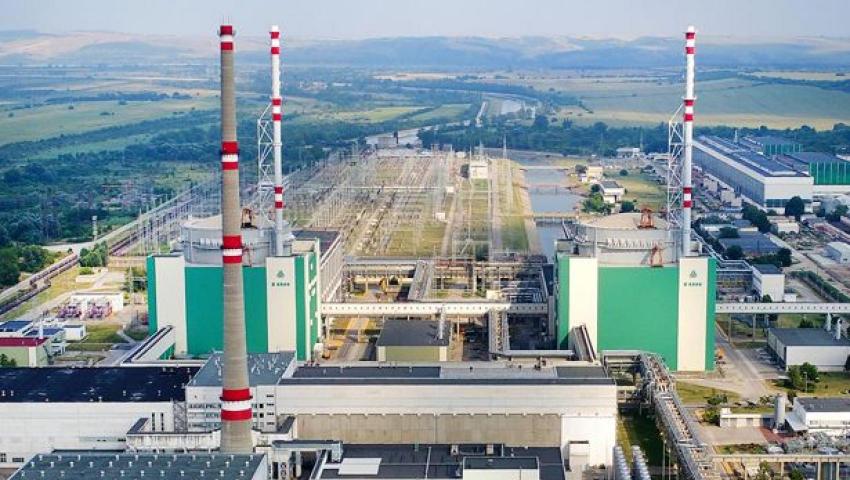Bulgaria is in no hurry to build a repository for the spent nuclear fuel of the Kozloduy NPP

At the moment, only preliminary studies of the possibilities for building a repository for nuclear waste have been carried out in Bulgaria with a view to clarifying the feasibility of such a project and the necessary conditions. This was said by the Acting Minister of Energy Vladimir Malinov during a hearing in the National Assembly regarding the construction of repositories for the permanent storage of spent nuclear fuel from the Kozloduy NPP and hazardous radioactive waste on the territory of Bulgaria, BTA reported. The construction of a repository for highly radioactive waste has been talked about for more than a decade, as it should be built by the State Enterprise "Radioactive Waste". Until now, spent nuclear fuel from units 5 and 6 of the Kozloduy NPP was exported and stored in Russia. However, the new Westinghouse nuclear fuel will have to be stored in our country, at the site of the Kozloduy NPP, until a place for its permanent storage is built.
According to Minister Malinov's data, the conclusion of these studies is that, in principle, Bulgaria has suitable geological conditions in Northern Bulgaria - in the marl massifs of the Mizia plate, for the construction of a repository for the geological disposal of nuclear fuel.
At the moment, there is no decision - neither by the Ministry of Energy nor by the Council of Ministers - to build a deep geological repository for the storage of nuclear waste, pointed out Vladimir Malinov.
At the moment, no field studies have been carried out at specific sites on the territory of Bulgaria, added the acting energy minister.
Vladimir Malinov recalled that Bulgaria's nuclear program adopted a policy of implementing a nuclear fuel cycle, in which spent nuclear fuel is sent for long-term storage and processing. He also explained that in previous periods, Bulgaria relied for a long time on storage and processing of nuclear fuel in Russia. The financial conditions and the lack of need to solve the issues of acceptance of high-level waste made this approach preferred in previous national strategies, commented the minister. Due to the changed geopolitical environment, this practice is currently impossible, Malinov pointed out. He added that this necessitated the search for alternatives and the study of technological possibilities for processing spent nuclear fuel from the reactors. Regardless, Bulgaria has an obligation to accept radioactive waste after its processing in Russia. At the moment, however, the parameters of the waste that are subject to return, nor the conditions for this, are not known.
Strategy for spent nuclear fuel
The official energy minister added that the specific volumes and characteristics of the spent nuclear fuel after reprocessing should be determined based on a future methodology for determining the quantities and characteristics of the return, agreed between the two countries and in accordance with international practice. The methodology must be agreed within 10 years before the physical return of this waste. For their intermediate storage in the medium-term plan, the corresponding repository should be built at the Kozloduy NPP site and a sustainable solution should be sought, which would be long-lasting for their burial. The main requirement for Bulgaria, according to a Euroatom directive, is to prepare a plan for the construction of such a repository with clear deadlines and stages for implementation.
In 2022, a working group in the Ministry of Energy developed a draft of an updated Strategy for the Management of Spent Nuclear Fuel and Radioactive Waste. The draft of the updated strategy was subject to public access and public consultations not only in Bulgaria, but also in the neighboring countries - Romania, Serbia, Greece and the Republic of North Macedonia, as well as in Austria. Cross-border consultations were also held. The results and opinions of all consultations were reflected in the updated version of the draft strategy in January this year, Malinov explained.
In the sample plan-schedule in the draft of the updated strategy, the construction of a repository for geological burial by 2050 is set, the acting minister pointed out. He noted that without a plan with detailed steps to put into operation by 2050 facilities for the disposal of highly radioactive waste, any proposal to build a new nuclear power cannot be recognized as a sustainable investment project according to several European documents.
Informing the public and local authorities, preparing investment proposals, as well as carrying out an environmental impact assessment, are part of the activities that are set to be implemented by 2033 according to an updated strategy project. Their implementation would begin if the Council of Ministers adopts a decision on the construction of a deep geological repository for storing nuclear waste, explained the Acting Minister of Energy Vladimir Malinov.
